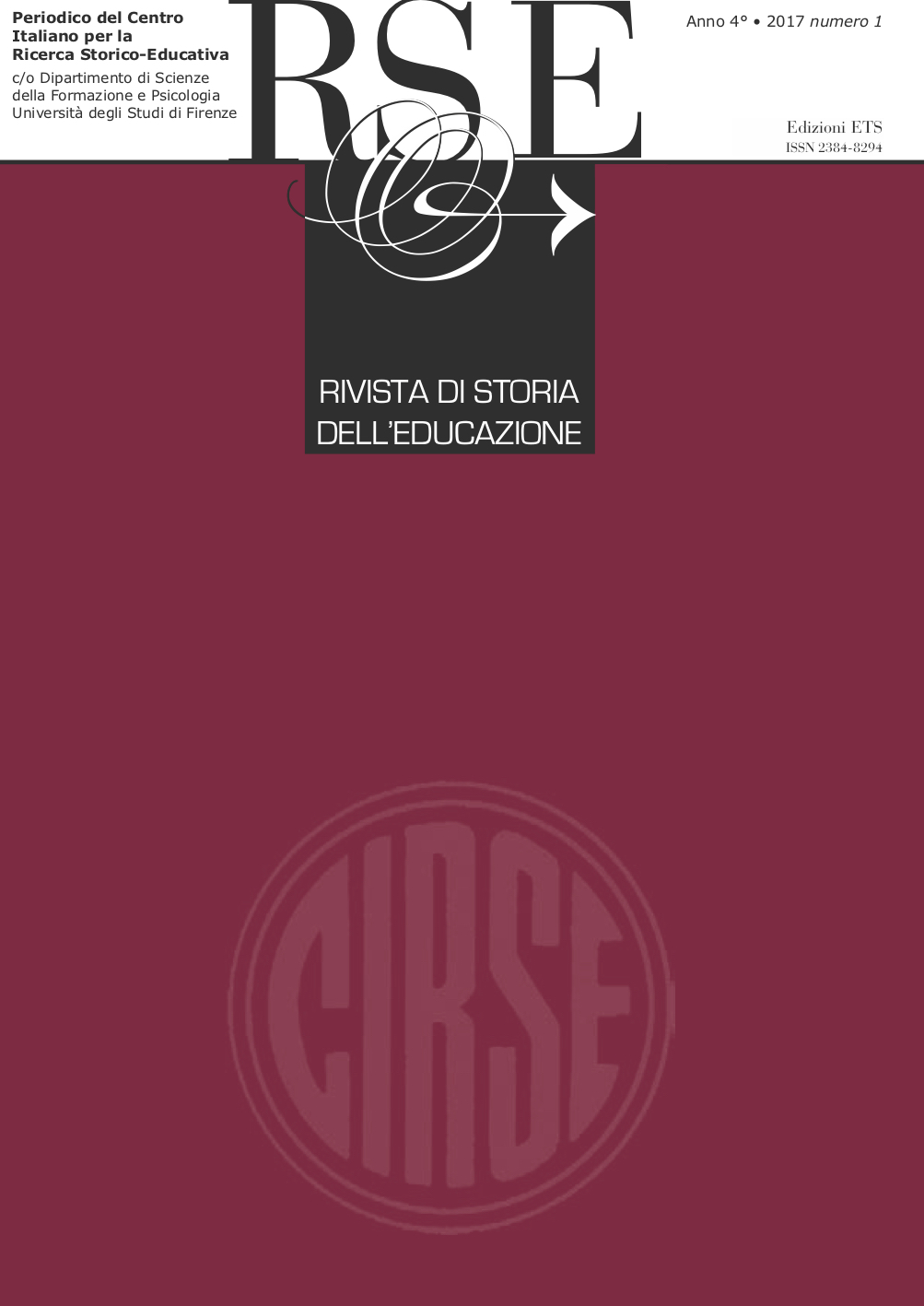Published 2017-11-20
How to Cite
Abstract
The aim of this essay is to analyse the deep relationships between consumerism, education and national identity in the Italian childhood during the Libyan War. A mass mobilisation that involved every interest of the growing generations, from literature to advertising, from cinema to toys, from traditions to school system. Childhood was forged at school in the name of the conquer; for this reason, the proliferation and circulation of illustrated notebooks was essential in order to understand the diffusion of stereotyped depictions of the military campaign. Even the school papers could highlight the quality of synergies between introjection of war and the vision given by the school system. Alongside the school, the childhood commercialisation was a fundamental part of the nation building process; for the first time, children were a tool of consumerism for a rising petit-bourgeois society. The evocative potential that the colonial conflict had on children was immediately perceived by many commercial companies, which considered the war a model and an occasion for gain.

